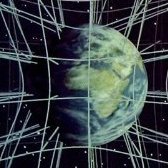Leaderboard
Popular Content
Showing content with the highest reputation on 02/06/20 in all areas
-
Hi there! I come here because a doubt about Redundant Haplotypes and his repercussions. I have been doing my thesis for the grade of Biologist about the Evolutionary Significant Units, this are populations of organism that were genetically isolated and have a diferent genetic variability. To make a delimitation of ESUs we indentificate reciprocal monophyly on a genetic tree, in this case whit COI and some of this ESUs have redundant haplotypes with some other locations. ¿ This redundant haplotypes make this reciprocal monophyly no viable?¿ This redundant haplotypes indicate a genetic relation? I have this dudes because i read, that is very difficult to have the same two haplotypes frommutations or another mechanisms, and that make this ones good to make filognenetic reconstructions. i not have literature about redundant haplotypes. I'm not a native speaker, i hope my doubt was cleary explain. Gretings from Chile!1 point
-
This is relevant: https://www.sciencealert.com/earth-s-core-is-2-5-years-younger-than-its-crust-thanks-to-the-curvature-of-space-time1 point
-
1 point
-
Because I am a Canadian and Ukraine is our ally. It matters to me and my countrymen that our allies contribute to war efforts and humanitarian aid in a timely and lawful manner. And I am half Ukrainian. Crimea to be precise. Despite decades and centuries of oppression and violence, the Cossacks (Khazak - loosely meaning "free men, adventurers having the right to travel and associate" and albeit peculiar, it was the only democracy in the region. Ukraine had been meddled by Poland, Sweden ( yeah, Sweden) and Russia, annexed by Austria and occupied by Russia. In WW1, my grandfather had the option fighting for the axis or death by firing squad. He was captured by the allies and released soon thereafter, because he inherently supported democracy. He sneaked back into Ukraine, rounded up the woman he loved and her daughter (who was not his blood) and escaped to the west. That girl was my grandmother. We lost people then and we are missing people now. But why do you care?1 point
-
1 point
-
This: https://www.nasa.gov/mission_pages/LRO/news/lro-farside.html (Probably not actually during an eclipse, but I'm not sure why that would be relevant?) But why settle for a satellite, when we can land there: https://www.sciencealert.com/feast-your-eyes-on-these-stunning-new-pictures-of-the-far-side-of-the-moon1 point
-
So you had an idea and presented it here with diagrams and your thought process, received some feedback, and now are refining your thoughts on your idea. Please don't be embarrassed. That is the format most threads take. Around here, that is what we classify as a successful, quality thread!1 point
-
Interestingly (or not), in commercial real estate the major shop in a shopping center that drives traffic for the smaller shops and keeps them from going out of business (drifting away?) is called the anchor.1 point
-
Never said it wasn't opposite, I'm framing a picture of a force. You assume other things affect this force, cool, I want to not look at that hole you put your mind in for a minute and maybe explore weird things we see. Is it incorrect because you see conflicting forces? that's not what I'm pointing out genius. The fact that you cannot comprehend a basic ass idea like this without interception of opposing ideas makes you incapable of seeing solutions to specific problems. "Checking people's work" is only beneficial to you if you know what you're correcting and you do it correctly, you are not in a patent office. Mansplaining the lorentz force makes you look stupid due to the fact that I've been trying to get you to reference it for a few weeks and you asked if it was a dot product. I know it, my slight of hand in notation shouldn't phase a someone who knows the equations. If you don't know what I'm talking about then don't respond.1 point
-
That is not possible. Many apparent paradoxes are resolved by realising this.1 point
-
The equivalence principle states that uniform acceleration is equivalent to the presence of a uniform gravitational field within the rocket. Any region of spacetime with uniform gravity is in fact flat, it has no curvature. This is why you can derive what happens in this rocket from SR, which is a model of flat Minkowski spacetime. The same is not true for the surface of the Earth - the gravitational field of any central mass is not uniform, but tidal. If you had sensitive enough instruments, you could detect geodesic deviation within the rocket (though the effects would be small, so the field within such a small region is very nearly uniform). So these two scenarios are physically distinguishable, at least in principle, given sensitive enough instruments.1 point
-
The twin paradox based purely in Special Relativity is truly a paradox, meaning it cannot be solved this way. In this case, both observers would actually measure the others clock to run slower. Then it is impossible to imagine how this can take place. The problem is that it assumes that two observers could have always existed in the universe with a constant relative velocity, but this would actually be impossible. Everything accelerated from the point of the Big Bang, so every two objects would have had to had acceleration relative to each other in their history. Even if you assumed that they were at a constant velocity relative to each other and their acceleration was due to the acceleration of spacetime itself, it would still have relative Doppler shifts. Then Doppler shifts solve the paradox in terms of acceleration.-1 points
-
"If the Universe started approximately 13.75 billion years ago as theorized by the 'Big Bang' and TIME itself only came into existence at the moment of the Big Bang, then surely this must be 'Universal Time'." No.-1 points
-
But do you agree that if TIME itself only came into existence at the moment of the Big Bang, that time must be the same for everyone inside the universe? You can call that 'TIME' whatever you like. It must be universal. The universe cannot come into existence relative to us (at different points in TIME), if we are in different galaxies for example, because TIME itself never existed before the Big Bang. So before this we had no different points in TIME. Time did not exist (according to Big Bang). So if TIME only came into existence at the point of the Big Bang, that TIME must be 'THE SAME' to everyone inside the universe. It must be UNIVERSAL and not relative. You say "NO", please elaborate. Explain how that TIME can be different for beings living in two separate galaxies for example. How can the universe come into existence at two different points in TIME, if TIME itself never existed before the Big Bang? How can that 'TIME' be relative. It must be universal. Or the Big Bang must be wrong. Thanks for taking the time to ponder this.-1 points
-
No. That is not what universal time means. Universal (or absolute) time would mean that all observers would agree about the amount of time that has elapsed sine the big bang. Which they know they wouldn't: it would depend on relative motion, amount of gravitational potential they have experienced, etc. Also, there is no evidence the universe "started" and valid theories that describe that. So the question is moot, really. You can't use the theory of relativity to discredit the big bang model because it is based on relativity. No. Because different observers experience time differently. That would be going back to a model of time that was shown to be wrong by the evidence. What is the point of that? No. For the reasons given above. It is the same event, but different amounts of time have elapsed since then as measured by different observers.-1 points
-
Yes, in principle. In fact, our view of the universe is pretty average so it would be hard for any observer to have seen a significantly greater age for the universe than us. But if someone had been in the closest possible orbit around a black hole ever since the earliest black holes were formed then they would see the universe as being only about 8 billion years old (I think - rough bit of mental calculation based on time dilation at the photon sphere). In reality, any differences actually observed would be much, much smaller than the errors in our estimate of the age. So it is not a practical problem.-1 points
-
It is more subtle than this. The 'Universe' for such an observer would be quite different from the 'Universe' we can see. In fact any observer would see different parts of the universe form any other observer. We can only see so far and can only infer what is beyond that. The point is that what we can see at the edge of our visible range is not so very different from what we can see close up. So we can only asssume there is more similer 'Universe' beyond the range of our vision because it were very different it would affect the conditions at the edge of what we can see and cause that to appear different. We do not know of any observer (star etc) going at sufficient relative speed to us to observe 30 billion years.-1 points
-
! Moderator Note You need to recalibrate your attitude. Lashing out at the people taking the time to answer your questions and giving the feedback you ask for is unacceptable. This is not an invitation to respond in this thread and try and defend your actions.-1 points
-
I don't know when exactly it was moved (or by whom) but may well have been when you said: But you are not just asking questions, you are also making assertions contradicted by physics.-1 points
-
non-dualistic quadruple concession. "kisses".-1 points
-
If so (and I don't know if that is correct or not) this is because they will disagree about exactly when the accelerations starts and stops (relativity of simultaneity).-1 points
-
If the Universe started approximately 13.75 billion years ago as theorized by the 'Big Bang' and TIME itself only came into existence at the moment of the Big Bang, then surely this must be 'Universal Time'. Yet Einstein and special relativity shows us that TIME is relative. There is no such thing as universal TIME. This has been experimentally proven. So then how could TIME only have come into existence with the Big Bang, as accepted by many supporters of the Big Bang. If TIME only came into existence with the Big Bang then that time would be universal. The universe would be 13.75 billion years old for us. And if there are aliens living in another galaxy the universe would have to be 13.75 billion years old for them as well. That Time would not be relative to either of us because the universe would have come into existence at the same moment for everyone in the universe. We would now have an entity that has been missing from physics - Universal Time. A concept of TIME that is not relative and cannot be relative because the same universe could not come into existence at different points in TIME for beings living in separate galaxies, if TIME itself only came into existence with the Big Bang. If that is the case then the universe is only 13.75 billion years old, relative to us here on earth but could be any age. Thoughts?-1 points
-
-2 points
-
Analogies seem to be lost on you. That's not for me to judge, but for you to present. I didn't make this about you, I made this about your countrymen. You made it about you.-2 points









